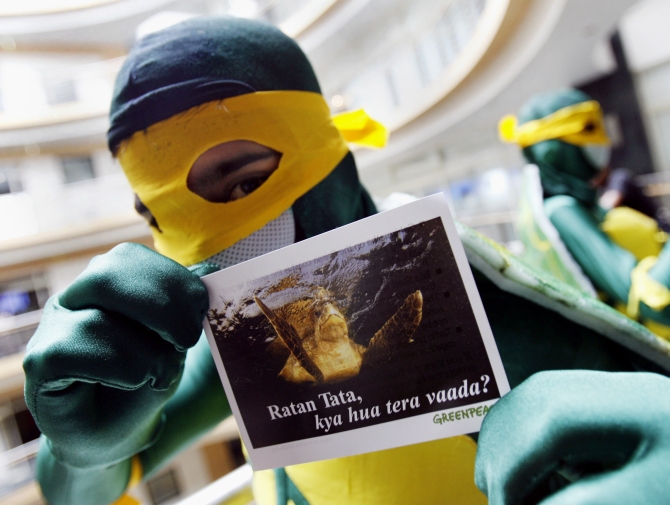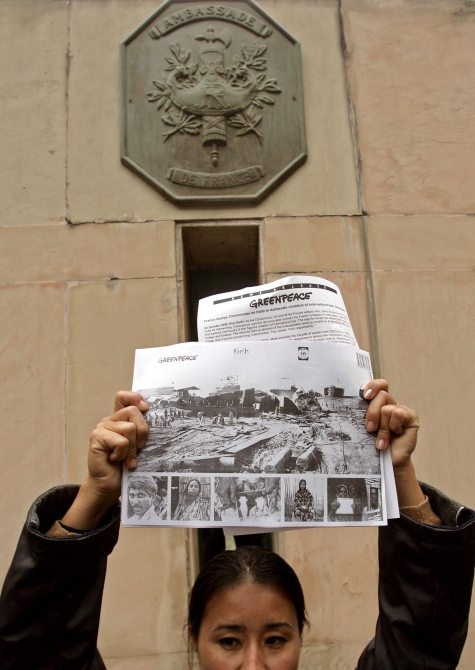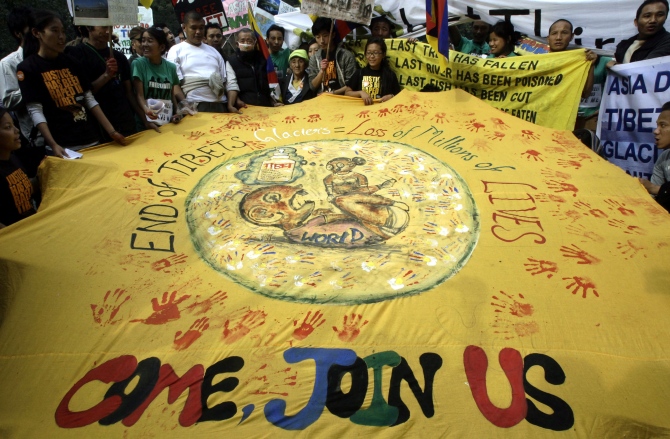
Say clauses like 'public interest' and 'national security' are used for targeting; govt faces big task in 2016 to renew NGO clearances
The home affairs ministry will check records, backgrounds and work of about 30,000 Non-Government Organisations in India in 2016. This will be done to decide if these can continue to receive grants under the Foreign Contribution (Regulation) Act, 2010.
This is the result of the changes the United Progressive Alliance government brought to the 1976 law in 2010, requiring NGOs to renew their clearances every five years.
Once an NGO applies, the ministry will have to complete verification in 90 days. Both the NGOs and ministry await with trepidation for chaos in 2016. In 2011-12, the ministry had carried out 132 inspections.
There is a chance the ministry's work might be less. None in the government or outside it, knows how many of the 43,000 NGOs with clearances exist. Some got their clearance right after the law was passed, a year after the Emergency. Some are said to hold many for decades. Harsh Jaitli, chief executive, Voluntary Action Network India, says, "There is no provision for an NGO to surrender a clearance even if it has stopped working."
The government has no way of finding which NGOs are dead. A ministry official says, "It is a mammoth task and we don't have a plan. In a year, we would devise a mechanism. We may cut many procedures for verification."
Please ...

Last year, 4,000 NGOs came under the scanner for not filing their returns on time. But most blame lies with the ministry for poor maintenance of records. An official said, "The foreigners' division office was shifted at least twice in two years. Most documents got misplaced during the process. Now an online process is under way."
But the Bharatiya Janata Party and the Congress may keep this division busy. The high court has given the ministry six months to relook at the two parties' books and probe foreign funding. The ministry had failed to take action against the two for getting funds from Vedanta Resources, a United Kingdom-based company, allegedly in violation of the law.
Ministry records show in 2011-12, NGOs had received Rs 11,546 crore from abroad. Of these, 20,297 grants were below Rs 1 crore and 148 above Rs 10 crore.
The highest amount came from the United States as usual. Small funds came from Rwanda, Latvia, Angola, Tonga, Malawi and Suriname.
The ministry defines the FCRA as a national security legislation piece. But it does not define public interest. The term is used to suspend or cancel a clearance. When the UPA government suspended Indian Social Action Forum's clearance in the public interest, the decision was dismissed by a court.
Ministry officials say suspension of FCRA permission followed by cancellations is a long process. It is usually avoided as it is difficult to defend such decisions in court.
Please ...

Jailti says, "Under this law, punishment starts before investigation. The first action is freezing of the FCRA account. The probe takes years. But the law requires a decision in 180 days."
A bureaucrat who often deals with NGOs says, "I have no doubt some have an agenda, different from the government's. Some donors, especially bilateral aid agencies of developed countries, also have an agenda. But are we saying anyone spending Rs 7-10 crore a year in a high-decibel media and public campaign can pull down the economy by two to three percentage points? That is not even five per cent of the advertisement spend of most large companies, I am sure."
Greenpeace received foreign funding averaging Rs 7.5 crore annually between 2009 and 2012. Others in a leaked Intelligence Bureau report even less. He suggests a more transparent reporting system.
An expert in NGO finance rules said the system is so cloaked by "security concerns" that there are brokers willing to get you a clearance for the right price. When an NGO files a return in hard copy or tells about a change of address, it does not get a receipt.
"You can't find if the government has updated records. But you can be punished if these records have not been changed," says an NGO official whose organisation faced this twice. He had only speed-post receipts to prove he had followed the law.
Please ...

Evoking "national security" and "public interest" have remained convenient phrases for the government to block any demand for transparency and accountability. But it admits not a single NGO has used the FCRA process to launder money till date.
There are ways of transferring funds to the country that skip targeted scrutiny. Left-leaning groups talk of funds gathered by Rashtriya Swayamsevak Sangh and BJP affiliates, such as Ekal Vidyalaya Foundation of US, abroad and sent to sister organisations in India.
Ekal Vidyalaya Foundation of India receives Rs 20 crore on average every year from abroad to run single-teacher schools patronised by the RSS. Some say the schools run a communal agenda, but others have backed these for good work. Sympathisers of the RSS point to larger global funding from Christian organisations for schools and health care. The funds, they allege, play a proselytising role. FCRA bans any funding of political activity.
Some NGO employees speak of people tapping the route to get foreign funds. Says one, "I get funds in my FCRA account. Then I hire the services of X to do the work. X gets his money, I get a cut and X does the work he was supposed to. The FCRA says you cannot transfer the funds but you can use these."